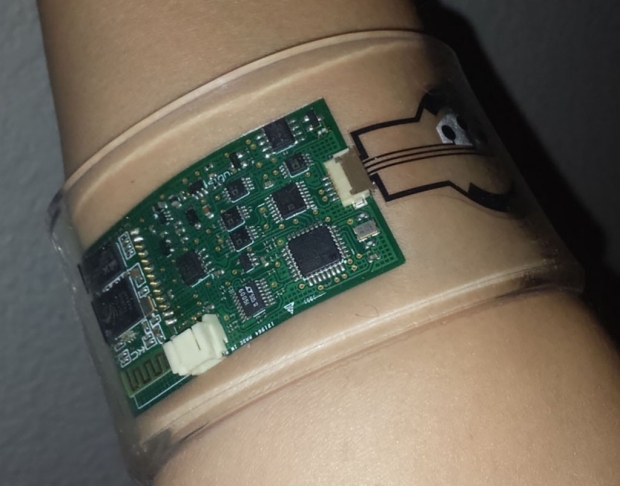 The age of gene editing is upon us. Specifically, the use of CRISPR. Amazing things are happening, proving again how clever humans are. Whether we're smart remains to be seen. For those who are unfamiliar with it, CRISPR -- more accurately, CRISPR-Cas 9 -- is a new technique for gene editing. It has allowed faster, more precise, and less expensive gene editing. It can already do more than you may realize. CRISPR has been much in the news lately, due to a new study published in Nature. Researchers successfully corrected a DNA mutation that causes a common heart disease that is sometimes fatal, especially for young athletes. In what is believed to be a first, the researchers repaired viable embryos. Moreover, they repaired most (72%) of the embryos, which is much better than previous efforts...
The age of gene editing is upon us. Specifically, the use of CRISPR. Amazing things are happening, proving again how clever humans are. Whether we're smart remains to be seen. For those who are unfamiliar with it, CRISPR -- more accurately, CRISPR-Cas 9 -- is a new technique for gene editing. It has allowed faster, more precise, and less expensive gene editing. It can already do more than you may realize. CRISPR has been much in the news lately, due to a new study published in Nature. Researchers successfully corrected a DNA mutation that causes a common heart disease that is sometimes fatal, especially for young athletes. In what is believed to be a first, the researchers repaired viable embryos. Moreover, they repaired most (72%) of the embryos, which is much better than previous efforts...
cystic fibrosis
See the following -
Antibiotic Resistance Doesn't Just Make Bacteria Harder To Kill – It Can Actually Make Them Stronger
 Bacteria can become drug-resistant in two ways – resistance can be natural, meaning that the genes conferring resistance are already present in the bacterial chromosome, or they can be acquired through mutation or by picking up antibiotic-resistance genes from other microbes. It is now possible to use new DNA-sequencing technologies to take a closer look at how the antibiotic resistance can make some bacteria weaker or stronger. And in a new study, we found that – contrary to conventional wisdom around antibiotics – resistance can actually make some bacteria fitter and even more virulent.
Bacteria can become drug-resistant in two ways – resistance can be natural, meaning that the genes conferring resistance are already present in the bacterial chromosome, or they can be acquired through mutation or by picking up antibiotic-resistance genes from other microbes. It is now possible to use new DNA-sequencing technologies to take a closer look at how the antibiotic resistance can make some bacteria weaker or stronger. And in a new study, we found that – contrary to conventional wisdom around antibiotics – resistance can actually make some bacteria fitter and even more virulent.
- Login to post comments
Bacteria from Cystic Fibrosis Patient Could Help Thwart Antibiotic-Resistant TB
 The number of drug-resistant tuberculosis (TB) cases is rising globally. But a newly discovered natural antibiotic -- produced by bacteria from the lung infection in a cystic fibrosis patient -- could help fight these infections. Lab testing reported in the Journal of the American Chemical Society shows that the compound is active against multi-drug resistant strains. Starting with the famous first discovery of penicillin from mold, scientists have continued to search for natural sources of antibiotics. And as pathogens develop resistance to once-reliable medicines, the search has taken on a new urgency...
The number of drug-resistant tuberculosis (TB) cases is rising globally. But a newly discovered natural antibiotic -- produced by bacteria from the lung infection in a cystic fibrosis patient -- could help fight these infections. Lab testing reported in the Journal of the American Chemical Society shows that the compound is active against multi-drug resistant strains. Starting with the famous first discovery of penicillin from mold, scientists have continued to search for natural sources of antibiotics. And as pathogens develop resistance to once-reliable medicines, the search has taken on a new urgency...
- Login to post comments
Phage Therapy Shown to Kill Drug-Resistant Superbug
 Scientists from the University of Liverpool have shown that phage therapy could offer a safe and effective alternative to antibiotics in the treatment of Cystic Fibrosis lung infections. Chronic lung infections caused by the bacterium Pseudomonas aeruginosa are becoming increasingly difficult to treat due to antimicrobial resistance (AMR). With limited alternative therapeutic options available this has led to a renewed interest in (bacterio)phage therapy. Phages are viruses that kill bacteria but are otherwise harmless. A major advantage is that phages only target the harmful bacteria, so there are less side of the effects often associated with antibiotics...
Scientists from the University of Liverpool have shown that phage therapy could offer a safe and effective alternative to antibiotics in the treatment of Cystic Fibrosis lung infections. Chronic lung infections caused by the bacterium Pseudomonas aeruginosa are becoming increasingly difficult to treat due to antimicrobial resistance (AMR). With limited alternative therapeutic options available this has led to a renewed interest in (bacterio)phage therapy. Phages are viruses that kill bacteria but are otherwise harmless. A major advantage is that phages only target the harmful bacteria, so there are less side of the effects often associated with antibiotics...
- Login to post comments
The Pandora's Box of Gene Editing Is Now Open
- Login to post comments
Wearable Sweat Sensor Can Diagnose Cystic Fibrosis, Study Finds
 A wristband-type wearable sweat sensor could transform diagnostics and drug evaluation for cystic fibrosis, diabetes and other diseases. The sensor collects sweat, measures its molecular constituents and then electronically transmits the results for analysis and diagnostics, according to a study led by researchers at the Stanford University School of Medicine, in collaboration with the University of California-Berkeley. Unlike old-fashioned sweat collectors, the new device does not require patients to sit still for a long time while sweat accumulates in the collectors...
A wristband-type wearable sweat sensor could transform diagnostics and drug evaluation for cystic fibrosis, diabetes and other diseases. The sensor collects sweat, measures its molecular constituents and then electronically transmits the results for analysis and diagnostics, according to a study led by researchers at the Stanford University School of Medicine, in collaboration with the University of California-Berkeley. Unlike old-fashioned sweat collectors, the new device does not require patients to sit still for a long time while sweat accumulates in the collectors...
- Login to post comments